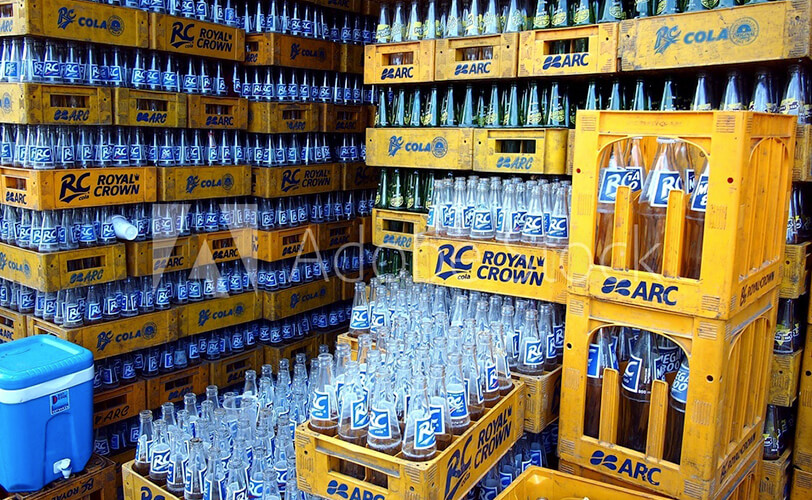
Have you ever listened to the TodCast and thought, “I wonder what it would be like if Todd and Eric actually discussed something and had the facts to back it up?”
Well, long time listener (and de facto executive producer) Abby has. She has done her homework and joined the Hersey boys to provide some clarifications on their recent “Paper or Plastic” episode in regards to recycling and sustainability.
Read The Podcast: Recycling Redemption
Both Eric and Todd agree that bringing on Abby helps class up the joint. Why not take that to our podcast blog. Let’s class up this joint with an actual (helpful) article.
Recycling – Consumer Behavior vs. Corporate Behavior
Arguing or debating about whether you should recycle shouldn’t be the question at hand. In fact, these discussions about recycling are exactly what the corporate giants wanted.
10% of Plastics have ever been recycled.

The entire recycling process was not created to be successful. The marketing coming from the plastic manufacturers successfully shifted the attention from them to the consumers. In short – they want us to feel bad for using the wrong trash can when they should feel bad for making large corporate decisions.
Reusable Bottles
You might be a little young to remember reusable soda bottles or milk bottles. Reusable bottles were the norm. If you wanted a six-pack of RC Cola, you would be hauling around six glass bottles. We all know the milk-man, right? He would drop off fresh milk in glass bottles and grab the empty bottles you left on the front porch. Times have changed…

You were incentivized to recycle – or just return the glass bottles. Todd and Eric’s father, Bill Hersey, was the king of recycling his RC Cola bottles. This was the mid-80’s and unfortunately, we no longer see this process. In 2012, we saw the last ever returnable glass Coca-Cola bottle.
If you want RC Cola, you drink from a plastic bottle or a can.
Marketing “How to Recycle”
Guess what? The major corporations figured out how to save money. This had something to do with the “Golden Age of Capitalism“. Post World War 2, people were buying and companies began to innovate ways to store (out of season) food. This helped to save food waste – which was great. But you know what wasn’t so great? We started to use plastic instead of glass.
Cleaning and sanitizing glass containers were more expensive than creating single-use plastic containers. Consumers of the day didn’t quite understand.
You can just throw this container away?

Actual advertisements were made showing people how to throw away their plastic containers. Up until the 1960s, most trash was burned in a barrel on site.
Creating an Organization
Plastic manufacturers helped work with glass manufacturers – getting them to make their containers thinner and lighter. This, of course, helped make the containers “more disposable”. Vermont was not having it. In 1953, the legislature banned the disposing of glass bottles. The packaging industry did not like this and they created Keep America Beautiful.
Yes – the commercial of the famous “crying Native American” was made by the actual plastic companies.
Reduce, Reuse, Recycle – this campaign was created to make us feel bad for not correctly disposing of their products. It worked. In fact, Todd and Eric talk an entire episode about how they can recycle better. With the heavy focus on recycling in the 1970s, Americans started to do better. But, this didn’t actually help because the program was made to fail.
What Gets Recycled?
Hold on? The recycling logo on a bottle isn’t actually a logo that says “this will be recycled”?

Most plastics can be recycled – but it’s usually not economically feasible for a company to recycle the plastic. This means most of these items end up in a landfill or shipped out of the country and burned (which is no good – putting it lightly).
What Can We Do? Still Recycle?
Yes – there are items that are still recycled.
Paper can be recycled properly (even though it requires a lot of water).
Aluminum cans can be recycled.
Plastic – it’s pretty hard to make this happen.
Although we can make a difference, the blame and pressure should be put on the companies that are producing and largely capable of changing the bigger picture.
100 companies are responsible for 71% Global Pollution.

We might not be able to boycott every company that causes these problems, but we can help put pressure on elected officials to regulate and enforce strict guidelines and policies that help with waste and pollution.
Headline Reads “Abby Loves Littering”
Abby doesn’t actually love littering. She – along with the Hersey boys – agree that our decisions are important. We should recycle and be responsible. But, it is likely the decision we make when we go vote will make a great impact then using a plastic cup or a paper plate.
Podcast Show Notes, References, and Links
Abby even gives us her sources:
- Adam Ruins Going Green (Adam Ruins Everything, Tru TV)
- Plastic Wars (Frontline, PBS)
- Everything Americans think they know about recycling is probably wrong (Erin Bilba, NBC News)
- The Litter Myth (Throughline, NPR)
- Focusing on how individuals can stop climate change is very convenient for corporations (Morten Fibieger Byskov, Fast Company)
- Compostable Worse Than Plastic? (Ecolunchboxes.com, interview with Céline Jennison, the founder of Plastic Tides)
- How Postwar Ads Got Us Hooked On ‘Disposable’ Single-Use Plastic (XiaoZhi Lim, Huffington Post)
Listen to Recycling Redemption

- Banned Books (2)
- Guest (7)
- IMDb Top 250 (1)
- Journey in the Omni (2)
- Listener Contribution (2)
- MT Cast (9)
- Music Ranked (27)
- Pointless Debates (22)
- Self Indulgent Audio Biography (11)
- Special (10)
- Spoiling Star Wars (39)
- T&E (253)
- The Hersey Hobby Wagon (20)
- Top 10ish (2)
- Trojan Horsing (1)






